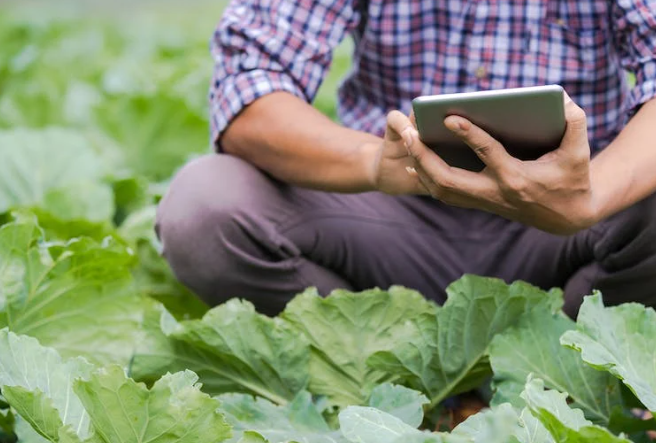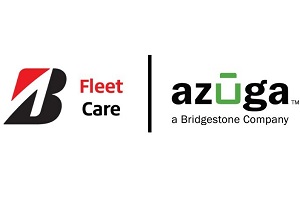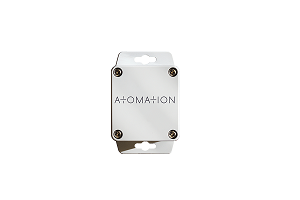
Virgin Media O2 has created the “Connected Farm of the Future” in a trial with Cannon Hall Farm in Barnsley, designed to showcase how enhanced mobile connectivity could change rural agriculture.
Virgin Media O2 is bringing connectivity to explore how a network of sensors and monitors can work together to transform the farm, saving time and money. The trial is helping create a blueprint for farming in time to come that could help unlock an additional £2.5 billion for the UK economy and create 30,390 additional rural jobs according to new economic modelling by Cebr for Virgin Media O2.
Agriculture has faced some challenges over the past few years, from extreme weather changes to labour shortages compounded by Brexit and the pandemic. In DEFRA’s latest Farmer Opinion Tracker, farmers on 52% of holdings do not feel positive about their own future in farming, up from 41% in 2022. Virgin Media O2, Cannon Hall Farm and Jules Hudson have designed the “Connected Farm of the Future” trial to help the industry combat these challenges.
“British agriculture faces great uncertainties, but without it the foundation of our rural communities would disappear. If Virgin Media O2 and other leading industry partners can develop ways of further supporting our farmers, it will play a crucial role in the fight to keep Britain farming and thriving,”, said Jules Hudson, TV presenter for ‘Springtime on The Farm’ and ‘Escape to the Country’.
Virgin Media O2 has boosted its network across Cannon Hall Farm to remove signal blackspots and not-spots, providing a high-speed mobile network to the area. This supports the testing of several connected technology use cases across the farm, including:
Protecting valuable assets
As the two most common rural crimes, equipment and livestock theft cost the rural agriculture industry a combined £49.5 million in 2022 alone. Compounding the issue are gates being left open on public footpaths that run around and through many farms, leading to livestock escaping fields and being lost or injured.
Trackers, sensors and switches like those installed across Cannon Hall Farm’s equipment, livestock and gates as part of this trial enable the farmers to monitor in real-time the location of these high-value items or receive alerts about gates left open. This means that farmers can be alerted instantly if equipment moves unexpectedly or leaves the farm, helping minimise the risk of loss.
Enhancing safety
With farmers often working alone across big areas and remote locations with little to no signal, access to connectivity is important. According to data from the Health and Safety Executive (HSE), agriculture has the highest workplace injury rate of 4,100 per 100,000 workers, 3.5 times higher than the all-industry average. The trial improves safety by removing not-spots, providing mobile signal across the farm and giving workers the ability to get help should they need it.
Optimising yields
Over the past 30 years, major crop yields have decreased globally by 4-10% due to climate change. To combat the impact of unpredictable weather events such as floods and droughts on crop viability and yield, part of the trial sees the installation of connected soil moisture, atmospheric temperature and humidity sensors. These sensors show the potential to monitor the health of crops and assess irrigation needs, reduce water use, improve crop quality and allow for targeted interventions based on real-time conditions.
“The potential for this technology to help create a more efficient, profitable and sustainable future for not only our family farm but many other farms across the UK is huge,”, said Rob Nicholson, owner of Cannon Hall Farm.
Boosting UK agriculture
The report ‘The Great Rulal Revival’ finds potential for the rural agriculture sector to increase turnover by 9.4% and boost employment, equating to an extra £2.5 billion per year and 30,390 additional jobs. However, as part of the economic modelling, decision makers within the agriculture sector were asked if they currently make use of connectivity and the results highlight the digital divide between urban and rural agriculture firms. When it comes to using connectivity for video calling/conferencing, fleet management, remote stock/inventory management or making and receiving mobile phone calls, agriculture firms in urban areas significantly outscore their rural counterparts: for example, 33% of urban agriculture firms use connectivity for remote stock checking/inventory management compared to only 4% of rural businesses.
“We will continue to work with industry partners, the UK Government, planning authorities and landowners to deliver the network upgrades to provide faster and more reliable coverage that is essential for rural communities to thrive both now and in the future,”, said Jeanie York, chief technology officer at Virgin Media O2.
Virgin Media O2’s “Connected Farm of the Future” trial showcases the impact of connectivity on rural agriculture, addressing challenges that arise. This initiative holds the potential to significantly boost the UK economy and create many rural jobs. In an era of digital transformation, bridging the rural-urban connectivity divide becomes important for the sustainability and growth of British farming.
Comment on this article below or via X: @IoTNow_OR @jcIoTnow
- SEO Powered Content & PR Distribution. Get Amplified Today.
- PlatoData.Network Vertical Generative Ai. Empower Yourself. Access Here.
- PlatoAiStream. Web3 Intelligence. Knowledge Amplified. Access Here.
- PlatoESG. Carbon, CleanTech, Energy, Environment, Solar, Waste Management. Access Here.
- PlatoHealth. Biotech and Clinical Trials Intelligence. Access Here.
- Source: https://www.iot-now.com/2023/09/25/136694-virgin-media-o2-trials-connected-farm-of-the-future-at-cannon-hall-farm/
- :has
- :is
- :not
- $UP
- 000
- 100
- 2022
- 30
- 9
- a
- ability
- About
- access
- According
- across
- Additional
- addressing
- agriculture
- alerts
- allow
- alone
- an
- and
- ARE
- AREA
- areas
- arise
- around
- article
- AS
- assess
- At
- atmospheric
- Authorities
- average
- Barnsley
- based
- BE
- becomes
- being
- below
- between
- Big
- Billion
- blueprint
- boost
- Boosted
- both
- Brexit
- bridging
- Bringing
- britain
- British
- businesses
- but
- by
- Calls
- CAN
- cases
- challenges
- change
- Changes
- chief
- chief technology officer
- Climate
- Climate change
- CO
- combat
- combined
- come
- comes
- Common
- Communities
- compared
- conditions
- connected
- Connectivity
- continue
- Cost
- could
- coverage
- create
- created
- Crimes
- crop
- crops
- crucial
- Currently
- decision
- decreased
- deliver
- designed
- develop
- digital
- Digital Transformation
- disappear
- divide
- do
- due
- Economic
- economy
- efficient
- employment
- enable
- enhanced
- equipment
- Era
- essential
- events
- example
- explore
- extra
- extreme
- faced
- faces
- family
- farm
- farmers
- farming
- Farms
- faster
- feel
- few
- Fields
- fight
- finds
- firms
- FLEET
- fleet management
- For
- Foundation
- from
- further
- future
- Gates
- get
- Giving
- Globally
- Government
- great
- Growth
- Hall
- Have
- Health
- help
- helping
- higher
- highest
- Highlight
- Holdings
- holds
- How
- However
- HTTPS
- if
- Impact
- important
- improve
- improves
- in
- Including
- Increase
- industry
- industry partners
- Initiative
- installation
- instantly
- interventions
- iot
- issue
- IT
- items
- ITS
- Jobs
- Keep
- Labour
- landowners
- leading
- left
- like
- little
- location
- locations
- loss
- lost
- make
- Makers
- Making
- management
- many
- means
- Media
- minimise
- Mobile
- mobile phone
- modelling
- money
- Monitor
- monitors
- more
- more efficient
- most
- moves
- Need
- needs
- network
- New
- news
- no
- now
- of
- Officer
- often
- on
- only
- open
- Opinion
- or
- Other
- our
- over
- own
- owner
- pandemic
- part
- partners
- past
- per
- phone
- phone calls
- planning
- plato
- Plato Data Intelligence
- PlatoData
- Play
- positive
- potential
- profitable
- provide
- providing
- public
- quality
- Rate
- real-time
- receive
- receiving
- reduce
- reliable
- remote
- remove
- removing
- report
- Reports
- Results
- Risk
- rob
- Role
- Run
- Rural
- Safety
- Said
- saving
- sector
- sees
- sensors
- several
- shortages
- should
- show
- showcase
- Signal
- significantly
- soil
- some
- stock
- such
- Supporting
- Supports
- Sustainability
- sustainable
- sustainable future
- targeted
- Technology
- Testing
- than
- that
- The
- The Area
- The Future
- the UK
- theft
- their
- These
- they
- this
- those
- Thrive
- Through
- time
- times
- to
- together
- Transform
- Transformation
- trial
- trials
- turnover
- tv
- two
- Uk
- UK government
- uncertainties
- unlock
- unpredictable
- upgrades
- urban
- Urban Areas
- use
- using
- Valuable
- via
- viability
- Video
- Virgin
- Water
- ways
- Weather
- were
- when
- will
- with
- within
- without
- Work
- work together
- workers
- working
- Workplace
- would
- year
- years
- Yield
- yields
- york
- zephyrnet












